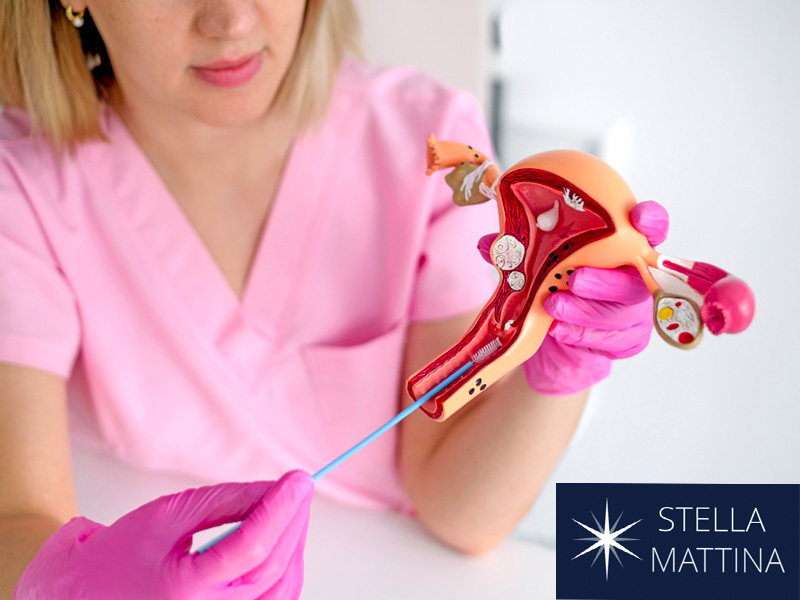
Cervical cancer is a preventable yet life-threatening disease. There have been advancements in vaccination and screening, yes. But there are still challenges such as these:
- Pap smears can very occasionally give a false negative. But see below.
- HPV vaccine efficacy is less than 100%.
This highlights the importance of you intervening proactively to get early detection of any possible cervical cancer.
With January marking Cervical Health Awareness Month, there’s no better time to take charge of your health and learn how to prevent this disease!
Let’s run through some facts to put it all in context.
Understanding Cervical Cancer and Its Risk Factors
Cervical cancer occurs when abnormal cells in your cervix grow uncontrollably. While the exact causes vary, certain risk factors significantly increase the likelihood of you developing the disease:
- HPV infection: Human Papilloma Virus (an STD) spreads through sexual contact and is responsible for nearly all cervical cancer cases.
- Irregular or missed Pap smears: Delays in screenings can lead to undetected abnormalities, increasing your risk of late-stage diagnosis.
- Lifestyle choices, such as smoking or engaging in unsafe sexual practices.
- A weakened immune system.
How to Prevent Cervical Cancer: 4 Steps for Proactive Care
While the HPV vaccine is highly effective, it doesn’t protect you against all virus strains. Additionally, screenings like Pap smears, though invaluable and now very sensitive, can just occasionally yield false negatives. (That means it says negative but should in fact be positive.)
This is why prevention requires a combination of vaccination, regular screenings, and adopting healthy habits – to ensure a comprehensive approach to safeguarding your health.
1 Get Vaccinated Against HPV
The HPV vaccine is a powerful tool in reducing your risk of cervical cancer. It protects you against high-risk HPV strains. It is most effective when administered before exposure to the virus, ideally during adolescence.
However, although it’s highly effective and causes almost all cases, the vaccine doesn’t cover all HPV strains. So, regular screenings remain essential for comprehensive prevention, as follows…
2 Regular Screenings: Pap Smear and HPV Testing
Routine screenings are essential for detecting precancerous changes in your cervical cells, allowing for timely intervention.
A Pap smear identifies abnormal cells in your cervix, while HPV testing detects high-risk HPV types that may lead to cervical cancer.
Together, these tests provide a fuller approach to monitoring your cervical health.
3 Practice Safe Sexual Health
Adopting safe sexual health practices can significantly reduce your risk of HPV transmission. Here are two simple yet effective strategies to lower your risk:
- Limit the number of sexual partners you have.
- Use barrier protection, such as condoms.
4 Maintain a Healthy Lifestyle
Having a strong immune system plays a vital role in preventing cervical cancer.
We suggest you support your health by eating a diet rich in fruits and vegetables, staying active with regular exercise, and avoiding smoking, which has been directly linked to an increased risk of cervical cancer.
Let’s now look at how this cancer progresses through stages – from stage 0 where we’re able to treat you relatively successfully, to stage 5 where this is a much more difficult task for doctors to manage.
Cervical Cancer Stages: Early Detection Saves Lives
Cervical cancer progresses through several stages, from precancerous lesions to advanced disease. Knowing about these stages emphasizes the importance of early detection. The stages are as follows:
0: Abnormal cells are present but haven’t spread.
1: Cancer is localized to your cervix, making it easier to treat.
2: Cancer spreads beyond your cervix but not to your pelvic wall.
3: Cancer extends to your pelvic wall or affects nearby lymph nodes.
4: The disease has spread to your distant organs, making treatment more complex.
You can easily see from this list that detecting cervical cancer in its early stages will improve the outcome of your treatment.
Can You Have Cervical Cancer Without HPV?
HPV is the primary cause of cervical cancer. It causes almost all cases, as we said above. Only rare cases occur without an HPV infection. These instances may result from genetic mutations, environmental carcinogens, or other less common factors.
But because of this rare possibility, regular screenings remain vital.
Can You Have Cervical Cancer With a Normal Pap Smear?
It is incredibly rare to have cervical cancer and a normal Pap smear. Pap smears have become much more sensitive in recent years.
The Role of Cervical Cancer Surgery in Treatment
If you have a diagnosis of cervical cancer, don’t immediately fear the worst. Surgical treatment offers a path to recovery and hope for a healthy future.
Advances in medical technology have made these procedures both more effective and tailored to individual needs. This helps you achieve better outcomes.
Surgical options vary depending on the cancer stage and your overall health:
- Conization: A minimally invasive procedure that removes a cone-shaped section of abnormal tissue, often used for early-stage cancer to preserve your fertility.
- Hysterectomy: The removal of your uterus and cervix, typically recommended for more advanced cases to prevent the spread of cancer.
- Pelvic Exenteration: A more extensive surgery for late-stage cervical cancer – involving the removal of nearby organs to ensure your cancer is fully addressed.
Empower Yourself Through Accessible Healthcare
At Stella Mattina, we make preventive healthcare convenient, comprehensive, and supportive, so don’t let your regular screenings slip!
We’re passionate about women’s health, and our commitment to accessible healthcare for you includes:
- Comprehensive primary care and OBGYN services, including Pap smears, HPV testing, and personalized care tailored to your needs.
- Same-day appointments to reduce the stress of waiting ages for results.
- A patient-first philosophy that ensures you feel informed, comfortable, and supported at every stage of your healthcare journey.
With several locations to choose from, we make it convenient to stay on top of your screenings and health needs!
Ensure a Healthy Future and Prevent Cervical Cancer with Regular Screenings
Cervical cancer is largely preventable through vaccination, regular screenings, and healthy lifestyle choices.
We offer same-day consultations and accept a large list of insurance providers: Schedule your appointment today and prioritize your health with preventive screening!
Dr. Krum is currently in practice in Arlington, TX. He received his undergraduate degree at Texas A&M University, then attended UTMB Galveston for medical school, finishing in 1986, completing his residency there in 1990. Providing a full range of obstetrical and gynecological care, he specializes in the treatment of endometriosis and robotic surgery. He arranges his schedule so that same-day appointments are usually available.
